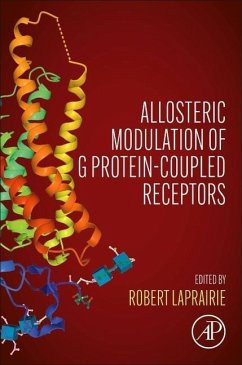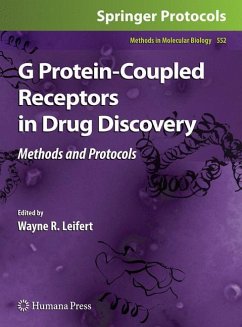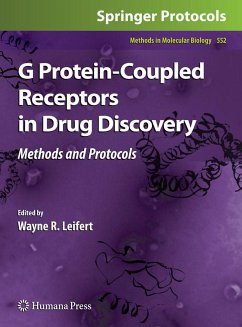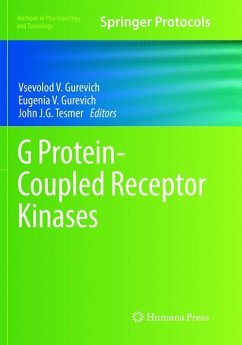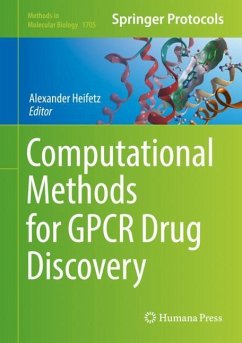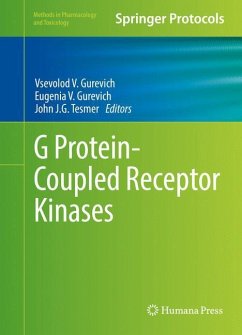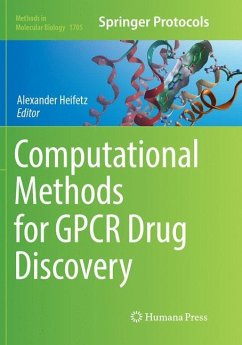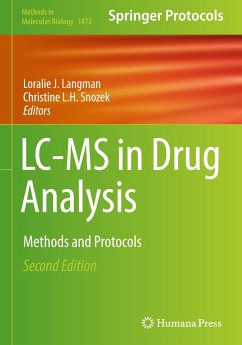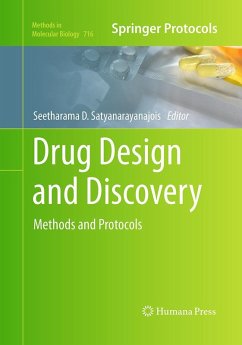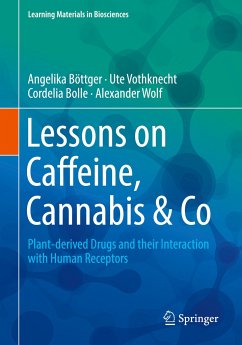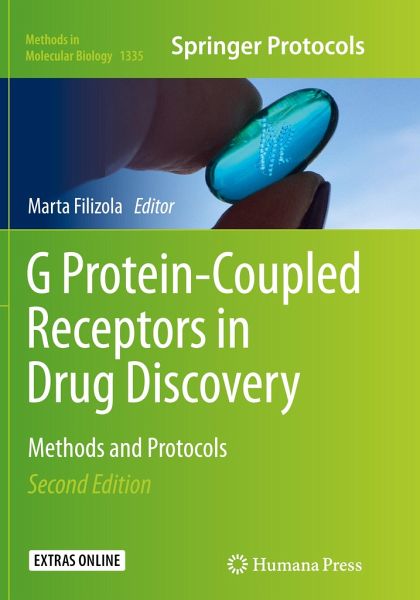
G Protein-Coupled Receptors in Drug Discovery
Methods and Protocols
Herausgegeben: Filizola, Marta
Versandkostenfrei!
Versandfertig in 6-10 Tagen
83,99 €
inkl. MwSt.

PAYBACK Punkte
42 °P sammeln!
This detailed volume provides an overview of recent techniques employed in the field of G protein-coupled receptors (GPCRs) to screen for new drugs and to derive information about their receptor structure, dynamics, and function for the purpose of developing improved therapeutics. Owing to remarkable recent advances in the structural, biophysical and biochemical analyses of these receptors, as well as a growing body of evidence hinting at the possible relevance of allosteric modulators, biased agonists and oligomer-selective ligands as improved therapeutic agents, drug discovery for GPCRs has ...
This detailed volume provides an overview of recent techniques employed in the field of G protein-coupled receptors (GPCRs) to screen for new drugs and to derive information about their receptor structure, dynamics, and function for the purpose of developing improved therapeutics. Owing to remarkable recent advances in the structural, biophysical and biochemical analyses of these receptors, as well as a growing body of evidence hinting at the possible relevance of allosteric modulators, biased agonists and oligomer-selective ligands as improved therapeutic agents, drug discovery for GPCRs has recently taken a completely new direction. For this book, expert contributors have shared their protocols and views on the impact of these methodologies on modern drug discovery. Written for the highly successful Methods in Molecular Biology series, chapters include introductions to their respective topics, lists of the necessary materials and reagents, step-by-step, readily reproduciblelaboratory protocols and tips on troubleshooting and avoiding known pitfalls.
Practical and fully updated, G Protein-Coupled Receptors in Drug Discovery: Methods and Protocols, Second Edition serves as an ideal guide for a diverse audience from structural and molecular biologists to pharmacologists and drug designers who wish to explore this extensive class of key drug targets.
Practical and fully updated, G Protein-Coupled Receptors in Drug Discovery: Methods and Protocols, Second Edition serves as an ideal guide for a diverse audience from structural and molecular biologists to pharmacologists and drug designers who wish to explore this extensive class of key drug targets.



